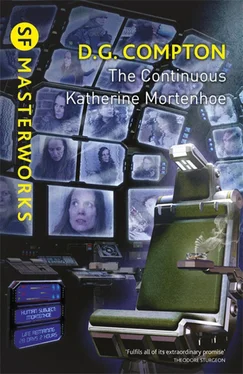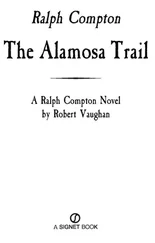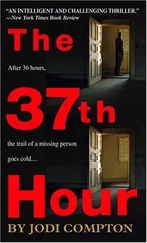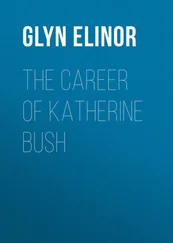‘That’s your privilege.’ I pointed at the long straight road ahead. ‘But there’s only one road. Would you rather walk in front or behind?’
I knew I must play it easy. But anything was a gamble: she could perfectly well sit down where she was and let me go on without her. That would leave me in a hole of my own digging.
~ * ~
He was mocking her. She was old, and naive, and dressed up in ridiculous clothes, and low on a sense of humor, and she could not endure to be mocked. She sat down heavily on her sleeping bag holdall, ignoring the stacked-up cars waiting for a gap in the marchers.
‘You go first,’ she said. ‘Youth before beauty.’
He went. A few yards off he turned back. ‘Look, I’m sorry I was ham-handed. When I said I wanted to help I meant it.’
She saw guilt in his face, and a sense of responsibility. She was nobody’s responsibility. And nobody was hers. Not anymore. ‘You have helped. I’m very grateful. But now I must manage on my own. Call it woman’s pride.’
Because she believed he wanted no alternative, she gave him none.
‘Please yourself.’ He shrugged, and set off away down the road. She could sense his relief. At fifty yards he looked back over his shoulder, and again at a hundred. She watched him diminish. She was free.
On one side of the road cars queued between closed Sunday morning shops and deserted Sunday morning pavements. The other side lay black and straight and empty. Behind her the marchers passed, horribly, in silence, like ants. Or like white mice. There was no more anger, or Harry, or Barbara, or Private Grief, or Vincent. There were no more plans, no more alternatives. No more Rod. She was nobody’s responsibility and nobody was hers. She was free of all these refuges. Free to warm her hands at her woman’s pride.
She shivered, not from a rigor but because she was cold.
When Rod was out of sight at last around a distant corner she got up and went slowly after him. She had made an important discovery. Her freedom was as restricted, as pragmatic, as it had always been. After the bus fare she had eight pounds seventy-eight, and most of twenty-three days in which to spend it. She could not go back to the church hostel, and the country — which she now admitted might not be quite so filled with lover-accommodating haystacks as Ethel Pargeter made out — was still a long way away. In addition, Vicar Pemberton’s charitable breakfast had not been quite what she was accustomed to. And finally, although yesterday’s drizzle had passed over, the early morning sun had disappeared, and the day was gray and chilly, and the drizzle anyway might easily come back.
She went slowly, not wishing to catch up to Rod. She did not grieve for him as a person — that had been the night’s nonsense — but she had to admit that as an authority on transience he could have been invaluable. No doubt it was possible to die with dignity even though cold and wet and hungry by an urban thruway… Even so, readily to accept, or even to seek out, such a situation seemed to her verging on the vulgar.
So she didn’t dodge back out of sight when she rounded the once-distant corner and saw him sitting on the curb, one boot off, examining his foot. And when she went on up to him and he didn’t let her see his blister but quickly put his sock and boot back on again, she felt it was a time for making compromises. For reasons that she did not even try to understand the relationship between them must have two-way advantages.
‘We’re not very good at this,’ she said. ‘Perhaps we should try for a lift.’
He tied his boot-lace very slowly. ‘Have you looked at us?’ he said finally. She was glad of his unwelcome. ‘You’ve changed sides, Katherine Mortenhoe. People don’t give lifts to the likes of you and me. We’re idle and oversexed. And we smell.’ He stood up. ‘We walk as far as we can. And then we look for somewhere warm and cozy like a bus shelter.’
‘If a bus shelter, why not a bus?’
‘No more Benefit for four days and fifty miles. We’re Transients. Do the sum yourself
She did the sum. ‘All right, so we walk.’
He took her holdall from her and she didn’t protest, and they set off. Cars passed them in clumps, let through by the marchers. Going the other way the road was solid with machinery, inching forward, transmissions whining.
‘Do we have to walk here?’ Katherine said.
‘It’s the quickest way.’
‘Where to? Where are we going to?’
‘Out of town. You said you wanted to get out of town.’
She didn’t ask him what they would do when they got where they were going, when they got out of town. Her plan had been no plan at all: a cozy barn, a cave in a hillside, a woody bower, a Keatsian dream, a nowhere. They walked on. She noticed Rod would remember to limp, and then forget. Somehow, everything was going to turn out all right.
‘Last night.’ she said suddenly, ‘when you saw who I was, what did you think?’
‘You mean, did I judge you?’
Of course, his sort — her sort now — didn’t judge. ‘No, I mean how did you work out what had happened?’
‘I’d seen the papers. It made sense.’
‘Didn’t you even blame me for taking all the money?’
‘Let’s say I was surprised.’
She wasn’t getting anywhere. But she needed an attitude. Attitudes located her thoughts as clocks located her actions. ‘Desperate situations breed desperate measures,’ she said.
‘Not always. Mostly desperate situations breed simple despair.’
She had thought that it was she who was leading, appraising him. Now it seemed that the situation might be the other way around. And she wasn’t yet ready. She lapsed into silence. The clogs made her feet ache.
‘This thing you’ve got,’ he said cheerfully, ‘how long d’you think it’ll let you keep mobile?’
‘I’ve no idea.’ Only she, in her thoughts, was allowed to be so direct. ‘Long enough. Longer than you’ll be around to see.’
He didn’t argue, though she wanted him to. ‘If you’re not to end up in the hospital you’ll have to be careful. Maybe a fringie commune’d be the thing. They’d never tell on you.’
She shook her head. She’d thought of that and rejected it. She noticed that he spoke as if he too were not really one of the Fringe People. ‘Who are you, Rod?’
‘You mean, what am I? I’m nobody’s nobody.’ He laughed. ‘Fringe of the fringe, that’s me.’
She wondered if it was fair to say she’d meant what rather than who. Certainly turning her question like that made it easier to answer. He seemed, she thought, to want to be truthful. ‘I don’t think a commune would do,’ she said. ‘I’m looking for peace, you see.’
‘I beg your pardon?’
He stopped walking, and turned, and stared at her. She stared back, her head on one side, frowning slightly. ‘I’m looking for peace.’ He looked down at her hands, fidgeting with her plaited hair belt. She was sure he’d heard her the first time. ‘I suppose you think that’s naive of me.’
‘Not really. Communes are peaceful. That’s their whole point.’
‘I visited one yesterday. I got these clothes there. And it wasn’t peaceful.’
‘You were an outsider.’
I am an outsider, everybody’s outsider… But she didn’t say it. If there was one thing she hated, it was people who thought and talked about nothing but their health. Instead she shrugged, and said, ‘All the same…’ and started walking again.
They walked on through the morning, sometimes quiet and sometimes talking, but never about very much. Even under the gray sky, down the hideous, endless road, Katherine found the walk pleasant. She was free. Her strange companion asked nothing of her. His presence was casual: even his help, carrying her holdall, made no demands. She could accept, and give nothing in return, or reject and receive nothing in return. She had never before been so safe, safe in the moment. She was free.
Читать дальше












